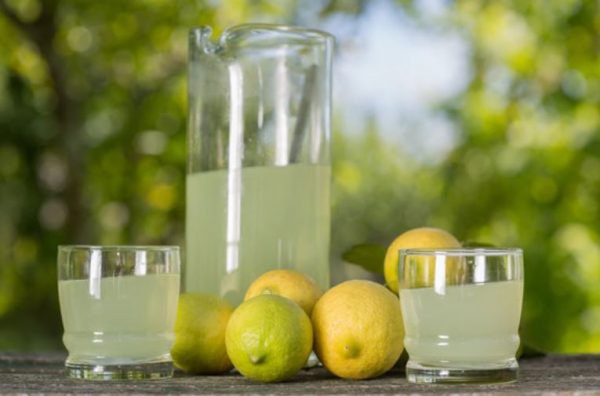Lemon juice, a staple in many kitchens, is known for its tangy flavor and versatility. From adding zest to dishes to being a refreshing drink ingredient, its acidic punch is undeniable. However, like all perishable items, lemon juice does have a shelf life, and understanding its expiration can ensure culinary success.
The question of whether lemon juice goes bad is a common concern among cooks and consumers alike. Given its acidic nature, lemon juice tends to resist spoilage better than many other liquids. However, factors such as exposure to air, light, and temperature fluctuations can impact its freshness over time.
Commercially bottled lemon juice comes with a best-by date, indicating its optimal freshness. Once opened, refrigeration is key to prolonging its shelf life. While it may not necessarily go bad in the same way as perishable foods, diminished flavor and quality can occur over time.
Table of Contents
The Shelf Life Saga Does Lemon Juice Sour Over Time?
In the intriguing narrative of lemon juice’s shelf life, the question arises: does its zestful tang eventually succumb to the march of time? Like a subtle alchemy, the essence of lemon undergoes a gradual transformation as it lingers on the shelf or rests in the fridge.
While it may not sour outright, its flavor matures, evolving from a bright burst to a mellower note over time. Nevertheless, amidst this culinary saga, lemon juice retains its essential charm, ready to infuse dishes with its timeless citrusy allure.
Lemon Juice Limbo Is It Time To Bid Farewell?
In the limbo of lemon juice, a moment of reckoning dawns: is it time to bid farewell? As the bottle languishes in the depths of the fridge, its once vibrant hue fades into obscurity, a silent testament to its journey through time.
While its acidity may endure, its potency wanes, leaving behind a ghost of its former zest. Yet, amidst the bittersweet farewell, lies the promise of new beginnings, as each squeeze of the lemon yields a fresh burst of flavor, reigniting the culinary spirit once more.
Souring Sensation Detecting Signs Of Spoilage In Lemon Juice
In the quest to detect spoilage in lemon juice, one must rely on keen senses akin to a seasoned detective. A cautious whiff might unveil hints of an off aroma, a subtle warning sign of potential deterioration. With a discerning eye, any deviation from its usual clear transparency may hint at unseen intruders like mold or cloudiness.
In the realm of culinary exploration, the palate that ultimately decides, as a sip may reveal a once-refreshing zest now tainted with the souring sensation of decay. In this pursuit of freshness, vigilance becomes the key to safeguarding culinary delights from the clutches of spoilage. Visit https://filterabout.com/ for expert insights and tips to enhance your culinary experiences and preserve the essence of freshness.
Preservation Predicament Best Practices For Keeping Lemon Juice Fresh
Navigating the preservation predicament of keeping lemon juice fresh demands a strategic approach. Shielded from the relentless onslaught of oxygen and light, storing lemon juice in airtight, opaque containers preserves its vibrant essence.
The icy embrace of the refrigerator extends its lifespan, staving off the threat of premature spoilage. Regularly inspecting for any signs of deterioration and promptly discarding if found, ensures only the finest citrus elixir graces our culinary endeavors. In this delicate dance of preservation, mastery lies in the balance between vigilance and care.
Tangy Troubles Unraveling The Mystery Of Expired Lemon Juice
Amidst the labyrinth of expired lemon juice, tangy troubles unfurl, weaving a cautionary tale of culinary mishaps. Once a beacon of zest and freshness, now it conceals a murky secret, its acidity tempered by time’s relentless march. But fear not, for there exists a remedy to rid your culinary kingdom of these dark spots: Easily remove dark spots with lemon juice.
A mere sip unveils the truth, as its once vibrant tang succumbs to a shadow of its former glory. Thus, in the unraveling of this mystery, let vigilant senses guide us, steering clear of the pitfalls of expired citrus.
Citrus Conundrum Understanding The Science Behind Lemon Juice Spoilage
In the citrus conundrum of understanding lemon juice spoilage, science unveils its secrets. At its core lies a delicate balance of pH levels and chemical reactions, where acids fend off microbial invaders.
Even in this fortress of acidity, time remains an unyielding adversary, gradually eroding freshness. Through the lens of chemistry, we unravel the mysteries of lemon juice’s journey from zest to spoilage, a tale of acidity’s triumphs and time’s relentless march.
FAQ’s
How Do You Know If Lemon Juice Is Bad?
You’ll notice a change in smell, turning rancid, and it may appear cloudy or develop mold, indicating spoilage. Trust your senses, if it smells off or looks unusual, it’s time to bid farewell to that bottle of lemon juice.
Is It Ok To Use Expired Lemon Juice?
Using expired lemon juice is not recommended as it may have lost its freshness and flavor, potentially affecting the taste and quality of your dish. It’s best to prioritize freshness to ensure the optimal culinary experience.
How Long Does Bottled Lemon Juice Last Once Opened?
Once opened, bottled lemon juice lasts for about 6 to 12 months when stored properly in the refrigerator, maintaining its tangy freshness for culinary adventures.
Conclusion
The question of whether lemon juice goes bad is met with a nuanced answer. While it may not spoil in the traditional sense, its flavor and quality can degrade over time, especially once opened.
By understanding storage guidelines and being attentive to sensory cues, one can prolong its shelf life and ensure its vibrant essence enhances culinary creations for as long as possible.

